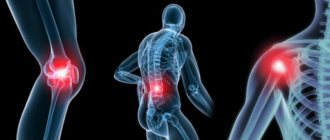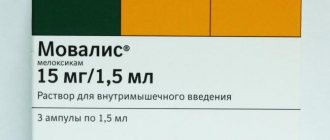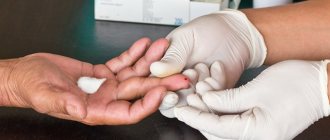Artificial intelligence and digital technologies are changing all areas of human life. Many familiar specialties are disappearing, but new ones are appearing, requiring a person to constantly expand his professional skills and combine different areas of knowledge. Medicine is no exception, and now we can observe the birth of unusual specializations.
What new professions are emerging in medicine now? We will tell you in the article. We will also share a list of the top 10 most unusual, in our opinion, medical professions of the future and tell you what knowledge and skills should be developed in order to become a sought-after specialist.
Don't forget to subscribe to our Telegram channel to receive the latest news from the world of education. And take advantage of promotions and discounts from the company.
Help is needed?
Entrust your work to a PhD candidate!
Professions of the future in medicine: main directions of development
Before connecting your professional life with medicine and enrolling in a specialized college or one of the best medical universities in Russia, you should think about possible career prospects. How will future professions related to medicine develop? You can find the answer to this question by understanding the main trends in the field:
- The duration of human life is constantly increasing. This means that in the future there will be a need for specialists who will help maintain the physical and psychological health of older people at a high level and improve their quality of life.
- Medical diagnostics are becoming more accurate—there will be a growing demand for doctors who understand modern technologies and can quickly make the correct diagnosis.
- The demand for robots in diagnostics, surgery and other medical fields is increasing. This means that we need those who can manage the equipment.
- Modern technologies make it possible to look into DNA and not only prevent chronic diseases, but also improve the human genetic code. This trend opens up two directions for development. The first is to study genetics and how it affects the human genome. The second is to explore the inevitable ethical problems that arise from genetic experiments.
- Traditional treatment, which focuses on specific parts of the body, is being replaced by a comprehensive systemic approach. This means that there will be a demand for specialists who understand not only classical medicine, but also integrate knowledge from other areas - homeopathy, psychology, alternative methods, IT technologies.
- Association with medical scientists from different countries. All new specialties in medicine are born in joint international projects. If you want to be at the forefront and actively participate in the development of medical science, you must not only acquire professional skills, but also learn English.
Thanks to the achievements of modern medicine, humanity has forgotten about such terrible diseases as plague or smallpox. However, in 2019, we found ourselves faced with a previously unknown virus, COVID-19. This means that epidemiologists and virologists still have a lot of work to do in the future.
Top promising developments
Promising directions in medicine are fundamentally different developments and methods of training future doctors. The healthcare system is constantly evolving, which gives rise to improved technologies. Various innovations greatly simplify the work of healthcare workers and make it possible to achieve greater success in the development of drugs for diseases that previously seemed incurable. Let's look at what innovative solutions in the field of medicine have appeared in the near future and what value they bring to it.
- Pharmacogenetics
Millions of people a year die from painkiller overdoses in the United States alone. People who are unable to cope with pain begin to take medications in larger and larger quantities, which leads to death. According to authoritative scientists in the field of biology and chemistry, a recent discovery in science - pharmacogenetics - may be a way out of this situation.
If you follow excerpts from the world electronic library, pharmacogenetics is the study of the influence of heredity on the occurrence of side effects from various drugs in a particular patient. Since the negative consequences of taking medications directly depend on the diversity of genes encoding metabolic proteins in the human system, this section of genetics is of great value to science.
The well-known Western European clinic Cleveland Clinic is of the opinion that tests conducted by genetic scientists will be able to provide a clearer picture of the effects of opioids on the human body. Thanks to them, it will be easier for doctors to understand what a person’s possible reaction will be to taking certain medications that contain narcotic substances. Pharmacogenetics will help identify which people are not suitable for opioid medications and what can replace them. This is a big step towards reducing the number of people dependent on opium.
- Mobile applications with medical support
Since the IT sector does not stand still and is constantly developing, almost every person has their own phone with Internet access. One of the most popular by-products of progressive digital technologies has become mobile applications. They began to be used not only by game developers, but also by government services. Thus, in the healthcare industry they are used everywhere: from the state portal for making an appointment with the necessary specialist, to special programs developed for providing first psychological aid.
If you look at official statistics, you can see how far doctors and programmers have come in the field of digital medicine. All created applications are divided into several types - these are fitness applications that allow you to monitor physical indicators during exercise; trackers of healthy habits, thanks to which users can join the culture of healthy lifestyle; applications that remind you to drink the required amount of water or take medications. One of the main innovative developments is the creation of an application that collects and stores individual physical indicators, for example: pulse, body temperature, breathing rhythm, etc.
- Gene code editing technology
The development of the digital world has allowed scientists to create a unique genome editing project. It was a real breakthrough in genetic engineering. Despite the fact that the project is still under development and is constantly being refined by specialists, it is already possible to draw conclusions about its significance for all bodies involved in protecting and ensuring public health.
So, with the help of a new method, people will have a chance to cure many deadly diseases.
This innovative solution can take medical care to a higher level. Thus, already in the 20th decade, the procedure of transplanting animal organs to humans became possible. Thanks to gene code editing, scientists achieve maximum identity of animal organs with human ones.
- Biohacking
The goal of this development is to improve all internal processes of a person and qualitatively improve his well-being. The idea of biohacking is to perceive your own body as a computing machine, and everything outside of it as tools for hacking it. That is why all kinds of dietary supplements, herbal teas, meditative practices and the transition to vegetarianism are becoming popular.
However, the deeper a person masters technology, the more accessible the secrets of his own body become to him. On the Internet today you can find a large number of different tips on how to properly “hack” the human brain.
Of course, biohacking has potential, however, it is important that it does not remain a folk remedy for enhancing mental and physical capabilities. Only if each implemented project is supported by facts and justified from a scientific point of view, will it be able to bring results. Otherwise, resorting to this method can be simply dangerous.
New professions in medicine of the 21st century
The Atlas of New Professions promises the emergence of 16 medical specialties of the future that will change our ideas about the role of a doctor. But this is not the entire list. We tried to collect all the popular and promising medical areas in a convenient table, but we are confident that this list will only grow over time:
| IT medic | Medical equipment architect | Genetic consultant |
| Network doctor (telemedicine) | Designer of life of medical institutions | Consultant for selection of genetic traits |
| Healthy aging consultant (gerontoconsultant) | Medical marketer | Bioethicist |
| Cybernetic doctor | Healthcare R&D manager | Molecular nutritionist |
| Neuropsychologist | Tissue engineer | Personal microflora manager |
| Molecular biologist | Developer of cyberprosthetics and implants | Clinical Bioinformatician |
| Telesurgeon | Medical gadget developer | Biopharmacologist |
| Cell biologist | Medical robot developer | Drag designer |
| Connectome Architect | Medical robot operator | Mind unloading reintegrator specialist |
| Personalized Medicine Expert | IT geneticist |
What will happen to traditional medical specialties? They will either be replaced by robots, or they will be somewhat modified under the influence of new technologies.
Decoding the human genome opens up new perspectives for doctors
How to train to become a promising doctor
To become a doctor, you must first enroll in a higher educational institution that trains future medical workers. The student must complete 6 courses to receive accreditation. It gives the right to a novice physician to begin practice immediately after graduating from university. Current specialists are required to confirm their accreditation every 5 years, otherwise they will not be allowed to practice medicine.
To obtain a narrower specialty, a student needs to enroll in a residency, which lasts from 2 to 5 years, depending on the chosen profession. For a highly specialized doctor, it is important to constantly improve their skills. For this purpose, there are many online courses operating at medical universities.
You can study to become a promising specialist who will be in demand in the future for quite a long time - up to 22 years. Since these professions are just beginning to be mastered, not all universities have departments that can train doctors of the future. At the moment, doctors who already have education and extensive experience are mastering new specialties by undergoing training in specialized educational institutions or online courses. Having in hand a certificate or diploma of completion of an educational program in the chosen specialty, the doctor can conduct independent medical practice.
Top 10 professions of the future in medicine
As can be seen from the table presented above, there are quite a lot of new and promising professions of the future in medicine. Of these, we have selected ten of the most unusual, in our opinion, medical specializations that will definitely change the world:
- Gerontoconsultant.
- Telesurgeon
- Cell biologist.
- Developer of cyberprosthetics and implants.
- Consultant for the selection of genetic traits.
- Bioethicist.
- Molecular nutritionist.
- Biopharmacologist.
- Connectome Architect.
- Reintegrator specialist in mind unloading.
Dr. House of modern medicine is not a person, but... a computer system called Watson, created by IBM. The accuracy of her diagnoses and treatment recommendations is 90%. While living doctors cope with this task only 50%.
Gerontoconsultant
One of the most popular professions in medicine in the future is a healthy aging consultant, or gerontoconsultant. After all, people in developed countries live much longer than before and want to maintain a high quality of life. And the task of doctors is to help them.
What does a gerontological consultant do?
The responsibilities of this specialist include several important areas:
- diagnostics of general health;
- development of an individual treatment plan;
- consultations on personal hygiene;
- selection of procedures that can maximize the quality of life;
- psychological support for patients to help them quickly get used to age-related changes.
What additional skills are needed?
- Development of systems thinking;
- psychological preparation;
- knowledge in the field of social work.
The population of developed countries is rapidly aging. This is due not only to the high quality of life, but also to the desire of young people to get a good education and build a career instead of entering into close relationships, early marriages and having children.
Telesurgeon
Telesurgeon is not a completely new medical profession, but rather a direction for professional development in surgery.
What does a telesurgeon do?
Telesurgery is a new technology that allows an experienced surgeon to perform complex operations using remote equipment. That is, on the patient’s side there are mechanical hands with a scalpel, which are controlled by a doctor via the Internet from anywhere in the world. And from the doctor’s side, there is a wide computer screen, a three-dimensional view and everything necessary to control the surgical operation. Telesurgery is a salvation for residents of remote villages and villages who simply do not have the opportunity to get to famous surgeons.
What additional skills are needed?
- Knowledge of foreign language;
- spatial thinking;
- ability to work with technology.
The forerunners of telesurgery are surgeries that involve minimal incisions. For example, such as laparoscopy. During this procedure, the surgeon makes a small incision in the desired area and inserts medical instruments into it. Doctors perform all manipulations based on the video transmitted by the light-sensitive elements of the laparoscope.
Cell biologist
There is an acute shortage of donor organs for transplantation in the world. This leads to premature deaths and the development of a black market in which human organs are traded. In Russia, the Ministry of Health adopted the draft federal law “On the donation of human organs and their transplantation.” According to it, the organs of deceased people can be used for transplantation, unless the potential donor has issued an official ban on such a procedure. But this still does not save the situation. A promising solution is to develop technologies for 3D modeling of human organs for their subsequent transplantation.
What does a cell biologist do?
The main tasks of a cell biologist, or a specialist in growing artificial organs, are to create special tissue and organs that can be implanted in the body of a sick person without consequences for health. To do this, such specialists must not only understand new technologies, but also monitor the correct division of cells. This is a very promising direction, given the current demand for donor organs.
What additional skills are needed?
- Knowledge of foreign language;
- physical and technical education.
By the way! Our readers now have a 10% discount on any type of work.
Developer of cyberprosthetics and implants
Prosthetics and implants are reaching a new level. Modern people want it to be not only functional and safe for health, but also beautiful. This led to the development of a new medical specialty - the developer of cyberprostheses and implants.
What does a cyberprosthetics developer do?
This specialist creates artificial prostheses that should not cause rejection by the body and replenish lost functions. Thus, implants for paralyzed people, artificial eyeballs, and more mobile prosthetic limbs are already being actively developed. This direction is a possible stepping stone for the development of professional skills among surgeons, ophthalmologists and other medical specialists.
What additional skills are needed?
- Physical and technical education;
- knowledge of new technologies;
- psychological preparation.
Cyborg people already live among us. One of them is Neil Harbisson. This is an artist and musician who, since childhood, suffered from complete color blindness, distinguishing only different shades of gray. But in the early 2000s, he was implanted with an antenna, thanks to which he now hears colors and creates sound portraits of people.
Artist and musician Neil Harbisson 'sees' people sounding different shades of orange
Consultant for selection of genetic traits
The possibilities of modern genetics are amazing. You can already order a genome decoding and receive a genetic passport, and based on the data obtained, prevent the development of many hereditary diseases. However, genetics makes it possible not only to prevent, but also to correct the human code.
What does a genetic trait selection consultant do?
It is precisely the improvement of the human genome that such a specialist will be engaged in in the future. However, today this medical field is in its infancy and is subject to severe criticism from human rights defenders.
What additional skills are needed?
- Knowledge of ethical standards;
- knowledge of modern technologies.
An experiment was conducted in China to correct the genetic code of an embryo. An artificial mutation was carried out in the gene code of two twins, which was supposed to make them immune to HIV infection. The results of the experiment are still completely unknown. The Chinese government classified the results, and the doctor who conducted the experiment received a prison sentence.
Bioethicist
Considering the growth of modern technologies and increasingly daring experiments in the field of genetics, human society has a request for a new medical specialty that will definitely be in demand in the future - this is bioethics.
One version of the emergence of COVID-19 is a failed medical experiment
What does a bioethicist do?
A bioethicist monitors how regulatory requirements are met in the activities of medical institutions and individual specialists. Their areas of interest tend to be genetics, transplantation and cloning. In the future, no operation of this kind will be possible without mandatory consultation with a bioethicist.
What additional skills are needed?
- Systems thinking;
- customer focus;
- stress resistance;
- psychological preparation.
Yale University has already launched the world's first educational program that trains future bioethicists.
Molecular nutritionist
Keto diet, mono diet, interval nutrition, vegetarianism, nutrition according to blood types - how to figure out which dietary program is right for your body? Very soon, a molecular nutritionist will answer these questions clearly and confidently.
What does a molecular nutritionist do?
Such a specialist develops an individual nutrition plan based on the unique characteristics of a person and his reactions to a particular food. To do this, the nutritionist uses data from standard tests, a genetic passport and the molecular composition of each product.
What additional skills are needed?
- Systems thinking;
- ecological thinking;
- customer focus.
Biopharmacologist
Standard medications not only have beneficial properties, but also have side effects. Plus, even the most expensive medications are sometimes not suitable due to the body’s individual intolerance to certain components. In the future, these problems can be avoided with the development of biopharmacology.
What does a biopharmacologist do?
This is a specialist who does not just create effective medicines. It uses biological ingredients and produces drugs with strictly defined characteristics. A biopharmacologist can essentially develop customized drugs.
What additional skills are needed?
- Customer focus;
- knowledge of ethical standards;
- ecological thinking.
In the future, it will be possible to produce drugs with desired properties.
Connectome Architect
A connectome is a complete diagram that describes all the neural connections of the human brain. Creating such a model is one of the most difficult tasks of modern science, which connectome architects are solving.
What does a connectome architect do?
This is one of the most amazing professions of the future in the medical field. After all, if we can understand how neural connections work in the human brain, we will be able to find out how psychological diseases develop and how to prevent them.
What additional skills are needed?
- Spatial thinking;
- technical education;
- working with graphics programs;
- knowledge of neuroscience.
The emergence of social medicine
Social medicine is a science that studies the patterns of development of healthcare, as well as the health of society. Medicine as a science differs from social medicine in that it studies the health of the entire society and its social groups, and not of an individual person. The main function that social medicine performs is to find out how the social environment affects a person’s health and how to eliminate such negative effects.
The history of social medicine also goes back many centuries. It originated along with such human skills as cleaning a home, washing dishes, burying dead people, etc. In order to prevent disease epidemics in Ancient Egypt and other countries, public places and markets were inspected, and sanitary supervision of drinking water wells was carried out. And the first to describe the principles of leading a healthy lifestyle was Hippocrates.
With the advent of the Middle Ages, many branches of science suspended their development, while social science did not stop developing. A concept such as “quarantine” appeared, and rules were developed for caring for an infectiously ill person. With the further development of social medicine, diseases inherent in certain professions were identified (the author of the work is Bernardino Ramazzini, an Italian scientist).
In the legal field, social medicine was also reflected - the Declaration of Human and Civil Rights was developed, recognizing the health of the country's citizens as its national wealth. This document appeared in France during the Great French Revolution. In 1822, the Higher Medical Council was organized in France, becoming the world's first medical management structure. The concept of health insurance appeared in Germany at the end of the 19th century.
Today, social medicine is a separate science, which is also studied by university students.
Reiki method
5. Reiki
Reiki is a palm healing technique developed in 1922 by Japanese Buddhist Myako Usui.
People who practice this method believe that they transfer their healing energy to sick people and thereby heal them.
Reiki teachings are based on the idea that invisible "life force" energy flows through our bodies and keeps us alive. If this very “life force energy” is low, then we are more likely to get sick or feel stressed.
If it is high, we are more likely to be happy and healthy. The teaching technique for this method is quite simple, but it is taught to students during Reiki classes. This method has no negative side effects, but it has not been scientifically proven.











